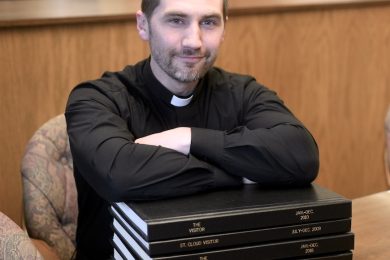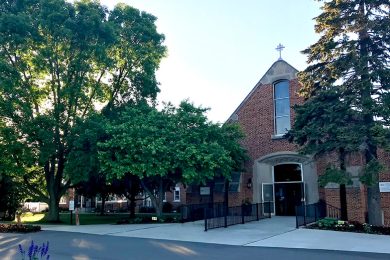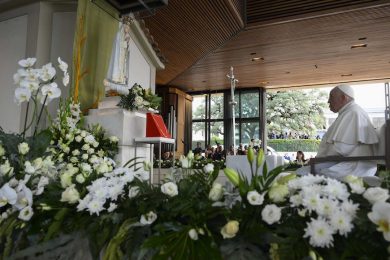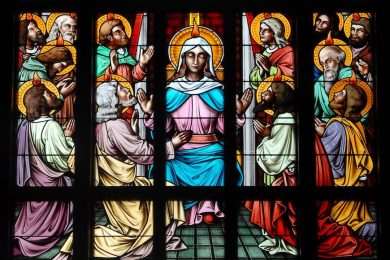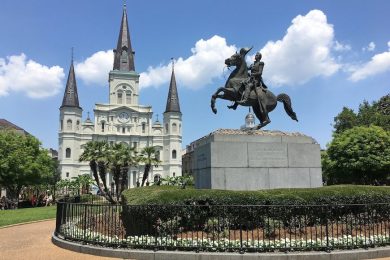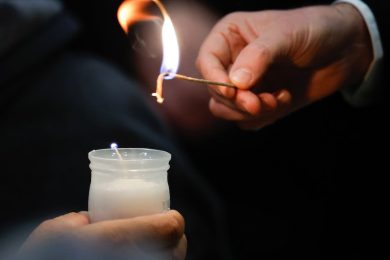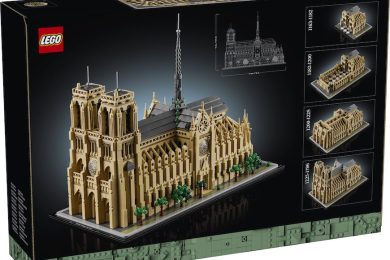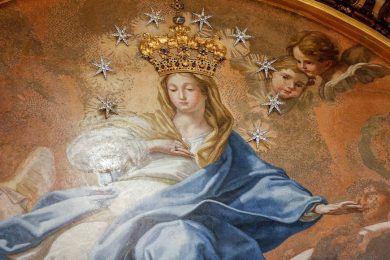By Judith Sudilovsky | OSV News
JERUSALEM (OSV News) — As a child growing up in Jerusalem, Eliane Abdinnour was taught that Mary Magdalene was a sinner and an outcast. But now, as an adult, she sees her as a brave woman of perseverance.
“When you think about it, we all come with baggage, nobody is perfect,” said Abdinnour, 55, who was among some 60 Christian and Jewish women from numerous countries who came together for the ninth annual Women’s Encounter of the Magdalena Institute at the Magdala pilgrim retreat center in the Galilee over the March 30 weekend.
“She was with Christ at the cross when his disciples abandoned him. For a woman to be there at that time took a lot of courage and humility. She knew she could be arrested or killed. But because of her unconditional love, she returned Jesus’ unconditional love,” she said.
Now Abdinnour said she sees Mary Magdalene as a role model of someone who is not afraid of advocating what is right and what is true, even if that carries a cost to herself.
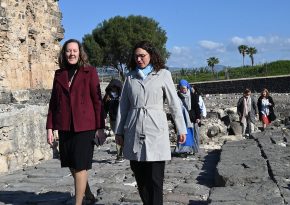
The Women’s Encounter aims to put a focus on academic discourse and spiritual reflection about feminine identity with women philosophers, educators and religious leaders, said Kathleen Nichols, a consecrated woman of Regnum Christi and a member of the Magdala leadership who has organized the conference for the past two years.
“We open a space to the revelation of ‘who does the Lord say I am,’ talking about our feminine identity and what the church says. What challenges (we face) in the world,” said Nichols. “We take a space here to not be afraid so we can draw conclusions and come to deep convictions and those convictions can be shared with the world. We are not looking to answer anything, but provide an opening up space so those convictions can come out.”
Magdala is located on the site of the ruins of a first-century Jewish town, including a Jewish synagogue, discovered as the pilgrims’ center was built in 2009. It is believed to be the biblical Magdala, hometown of Mary Magdalene.
Named in the Gospels as the first witness to Jesus’ resurrection, Mary Magdalene’s memorial day was elevated to a feast day by Pope Francis on the Catholic Church’s liturgical calendar in June 2016.
The conference included academic, religious and activist women speakers who looked at modern feminine identity from philosophical, practical and biblical — both Jewish and Christian — points of view, including modern-day challenges, body image, spiritual and gender identity.
Yisca Harani, a Jewish lecturer, adviser and guide in Christian history and pilgrimage, who together with Rabbi Lana Zilberman Soloway, presented on the feminine image of women in the Old Testament, noted that Mary Magdalene is not mentioned as the daughter or a wife but as a person in her own right, and as such can be said to be “out of sequence” with the stories of women in the Old Testament.
“Mary Magdalene, who was a Jewish woman of her time, was a patroness. In a very patriarchal society, we don’t know who is limiting her,” said Harani. “She went to Jerusalem … with absolutely no male companion. This completely takes my imagination (of who she was) into a different level.”
Her story was later manipulated by “narration of history, not by the narration of the New Testament,” Harani said.
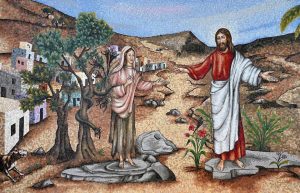
“Different worldviews, historical circumstances, social or pastoral contexts and even ideologies have either focused on a particular aspect or adapted her life story to speak a particular message. At times, this risks high-jacking the essential Christian message. But at the same time, it speaks of the universal appeal and resonance that this saint offers all people,” noted Jennifer Ristine, a consecrated woman of Regnum Christi. She initiated the Women Encounters format and has written a book about Mary Magdalene, whom she notes remains a mystery.
Mary Magdalene forwent the conventions of respectability for a woman of her time and walked as the sole woman with Jesus’ disciples to Jerusalem, with the conviction that she had to follow him, Ristine said.
“Who is she that is able to come to this point? She doesn’t flee like the other apostles. She is there. She is steadfast,” said Ristine. For her, Mary Magdalene can serve as a reflection of “how do we face suffering? Do we follow or harden our hearts?”
Called the Apostle of the Apostles, Mary Magdalene was one of Jesus’ disciples, she accompanied him at his crucifixion along with his mother Mary, and — staying by his tomb in the garde — was the first to witness his resurrection.
“Mary Magdalene’s role in the Passion was extraordinary. She was there with his mother, and they were not afraid to take on part of the Lord’s pain. Something in the love and forgiveness they received changed their lives,” said Nichols. “Their role in the Passion speaks to women in general. Women have a high tolerance for pain and difficulty and they make their way through it.”
Ristine notes that at the time most women were named after their husbands, but Mary Magdalene carried the name of “Magdala,” which in Hebrew means tower or strength.
“She is the symbol of the bearer of good news,” Ristine said. “Mary Magdalene is a door into Christ, bearing good news and the knowledge is very special. It is very intimate to be there with someone who is being crucified.”
Keynote speaker Marta Rodriguez, a founder and currently visiting professor of the Institute of Higher Studies on Women of the Pontifical Athenaeum Regina Apostolorum, noted that it is not necessary to be a person of faith to admire Mary Magdalene as a woman of valor who goes against the established system.
Indeed, said Ristine, even faced with the challenges and burdens of a modern world, Mary Magdalene can serve as a paradigm of hope.
“Mary Magdalene’s experience is something quite universal and has inspired us and helped a lot of women who have come to Magdala after experiencing abuse, depression. They have looked to her as a sign of hope and echo her original call walking with God. We long for that form of intimacy,” she said.


